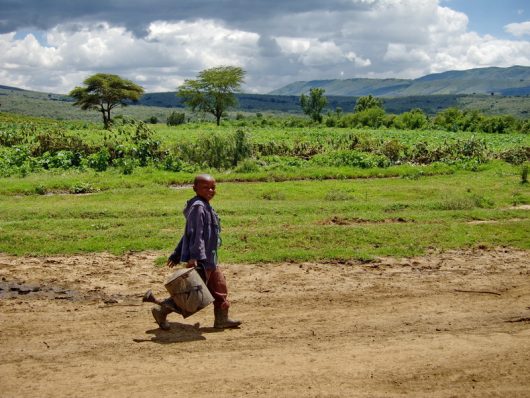Cutting-Edge Apps Improve the Quality of Life in Africa

The mobile phone continues to be one of the best weapons in the fight against global poverty. According to Global Mobile Suppliers Association (GSMA), currently six in ten individuals worldwide have cell phone access, and most of those people reside in developing countries where basic living necessities such as clean water are scarce. In Africa, up to 93 percent of the population has access to cell phones. This access provides opportunities for organizations to design anti-poverty programs, and as a result, their cutting-edge apps improve the quality of life.
Earlier this month, the Red Cross Society of Côte d’Ivoire (RCSCI) debuted its RCSCI mobile app with a threefold purpose: to improve living conditions, bolster healthcare programs and assist authorities with enforcing international humanitarian law compliance. It boasts features including regular updates on volunteer projects and educational posts on how and where to donate blood. It also provides 24-hour emergency alert notifications, ensuring that response time is quicker than ever after a natural disaster.
“We are thrilled with the launch of our new app, and the opportunity to provide aid to those in need and improve humanitarian efforts throughout the region,” RCSCI secretary general Emmanuel Kouadio stated.
The RCSCI provides one of many examples of how groundbreaking apps improve the quality of life in Africa. Last month Nigeria began a new program called “SMS for Life 2.0.” Designed as one part of a comprehensive information communications technology (ICT) development initiative, the program focuses on improving healthcare for Nigerian citizens by monitoring the availability of medicine and improving the safe delivery of drugs. The program is being implemented in each of the 36 Nigerian states and is already in use at more than 250 facilities.
In addition to SMS for Life 2.0, app designer Vodacom has created a school management program using mobile technology to provide reliable, quality meals for students and is planned for use in 4,000 schools across Nigeria’s Kaduna State. Chief Officer of Vodacom Business Vuyani Jarana recently told IT News Africa, “Vodacom is taking the lead in leveraging mobile technology to address healthcare, education and agricultural challenges in Africa.”
Both RCSCI and Vodacom are continuing to broaden their programs in efforts to eliminate poverty, with a focus on the future of agriculture as the next phase of development. Eventually, it is hoped that near-universal access to mobile technology will alleviate the lack of access to other vital resources in Africa.
– Dan Krajewski
Photo: Flickr
